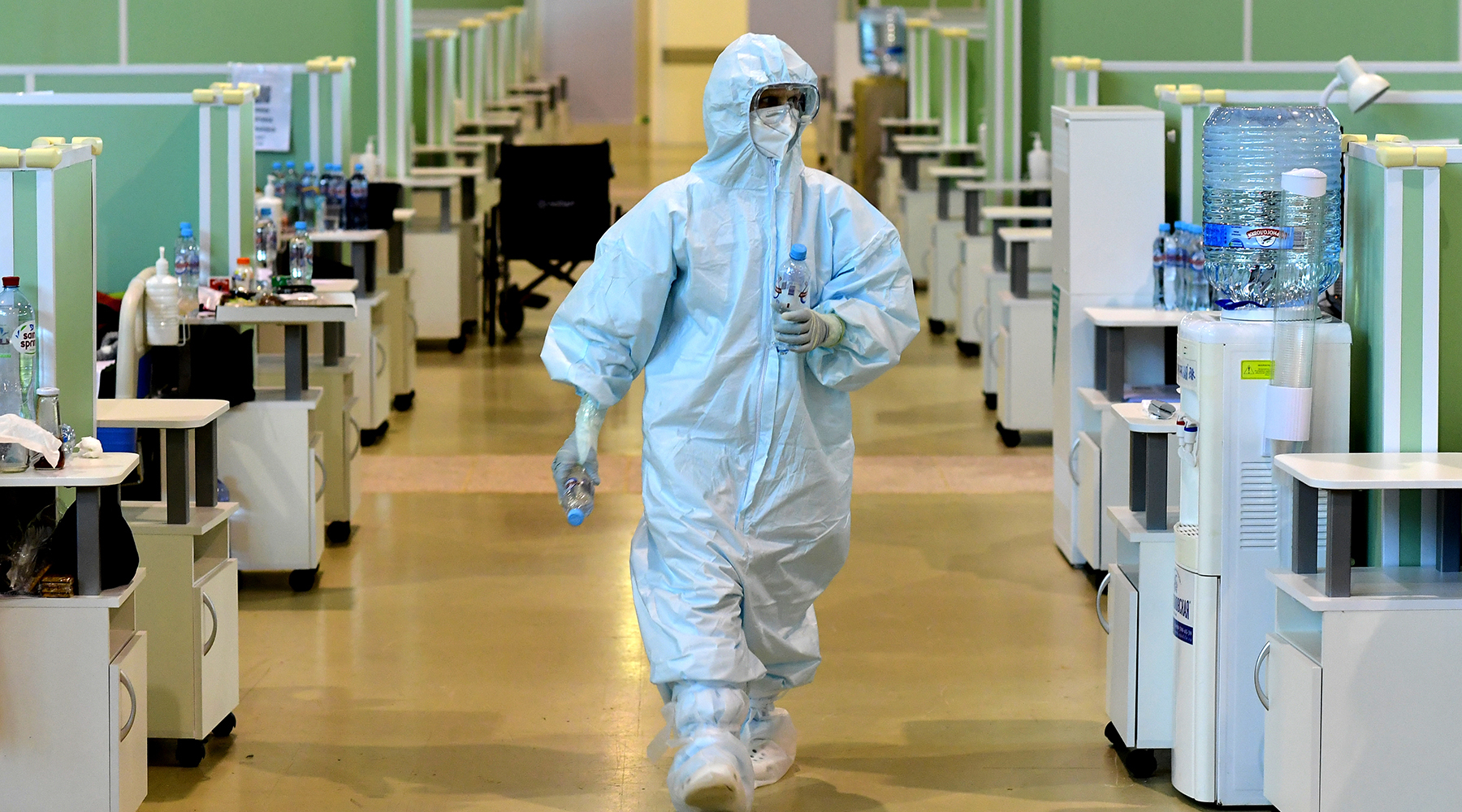Over the past day, 18,665 new cases of coronavirus were detected in Russia (the day before, the diagnosis was confirmed in 18,140 people).
This is a new daily maximum for the RF, the previous peak was recorded on October 30 (18,283).
In total, since the beginning of the epidemic, 1,636,781 cases have been identified in the country, of which 1,225,673 people (74.88%) recovered, including 10,259 over the past day.
From complications that developed against the background of COVID-19 and concomitant diseases, 28,235 patients (1.73%) died, 245 people died per day.
Over the entire period, over 61 million laboratory tests for coronavirus were carried out, including 588 thousand in the last day.
About 390 thousand people remain under medical supervision.
In Moscow, 5261 new cases of the disease were detected (a day earlier - 4952).
In the spring, the maximum daily increase in the city was recorded on May 7 (6703 people).
According to the capital's headquarters, 1,131 patients with coronavirus were admitted to hospitals per day.
More than 500 new cases of COVID-19 per day were also recorded in St. Petersburg (896) and the Moscow region (545).
Moscow Mayor Sergei Sobyanin said that the reserve hospitals formed in the capital will work until the end of the pandemic.
"The reserve hospitals will work in full, even if there is a decrease in the load of hospital beds under the covid, we will gradually release stationary buildings, keeping reserve hospitals until we are convinced that the pandemic has passed," the mayor said on the air of the channel. Russia 1".
The mayor believes that the restrictions introduced in the capital have shown their effectiveness and "give hope that the situation will not worsen."
RIA News
© Alexey Maishev
On the eve it became known that in connection with the situation with the coronavirus in Moscow, mass events scheduled for November 4 and 7 were canceled.
"In order to prevent the spread of coronavirus in the city of Moscow and on the basis of the decree of the President of Russia, the ban on holding public events in the city of Moscow established by the decree of the mayor of Moscow continues to operate," the press service of the Department of Regional Security said.
The department said that the government of the capital received notifications of public actions on November 4, 2020 in different parts of the city.
It is noted that "in connection with the above, the public events announced for November 4 by the executive authorities of the city of Moscow have not been coordinated."
For the same reason, a solemn march dedicated to the anniversary of the 1941 military parade on Red Square on November 7 was canceled.
Protection against infection and contraindications for vaccination
Doctor of Biological Sciences, Head of the Laboratory of Bionanotechnology, Microbiology and Virology at Novosibirsk State University Sergei Netyosov spoke about the effectiveness of glasses as a precaution during an epidemic.
According to him, the benefits of wearing glasses have been identified in China.
"In China, a study was conducted, it turns out that people who wear glasses are infected with COVID-19 five times less," - quoted the scientist "Rossiyskaya Gazeta".
According to him, China has paid attention to this circumstance, since relatively few people wear contact lenses in China, more than 80% of the republic's residents with visual impairments wear glasses.
“There were very few patients with glasses, only 10% of patients wore glasses,” says Netesov.
In turn, the infectious disease doctor, immunologist Georgy Vikulov spoke about the factors in which vaccination against COVID-19 should be postponed.
“Vaccination is carried out only in the absence of general contraindications for the vaccine and individual contraindications that a person may have.
In the absence of exacerbation of any chronic diseases, acute conditions, including acute respiratory viral infections, flu, infections.
Any acute situation is a relative contraindication or a situation that requires waiting.
A person needs to pause to find a more suitable moment for vaccination, ”the specialist said in an interview with Sputnik radio.
According to him, in about 1% of the population, the body may not respond effectively to vaccination or not at all.
Vikulov explained that the ability to respond to vaccination depends on a number of factors, in particular, the state of the immune system at the time of vaccination, the correctness of the procedure, the technique of immunization, as well as the stability and activity of the drug.
The doctor also reminded about people with immunodeficiency conditions.
In addition, Vikulov spoke about the factors that affect the production of antibodies to coronavirus.
"The production of antibodies can be influenced by the drugs taken, the presence of an exacerbation of certain diseases and, most importantly, a sufficient number of cells that produce these bodies, that is, the presence of a mechanism that ensures the formation and switching of antibodies," the immunologist explained.

